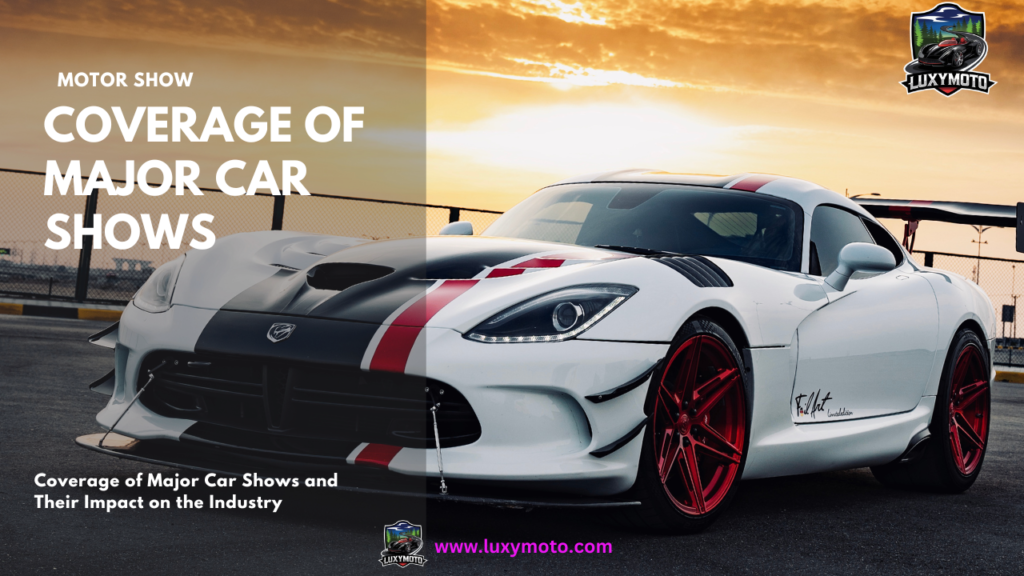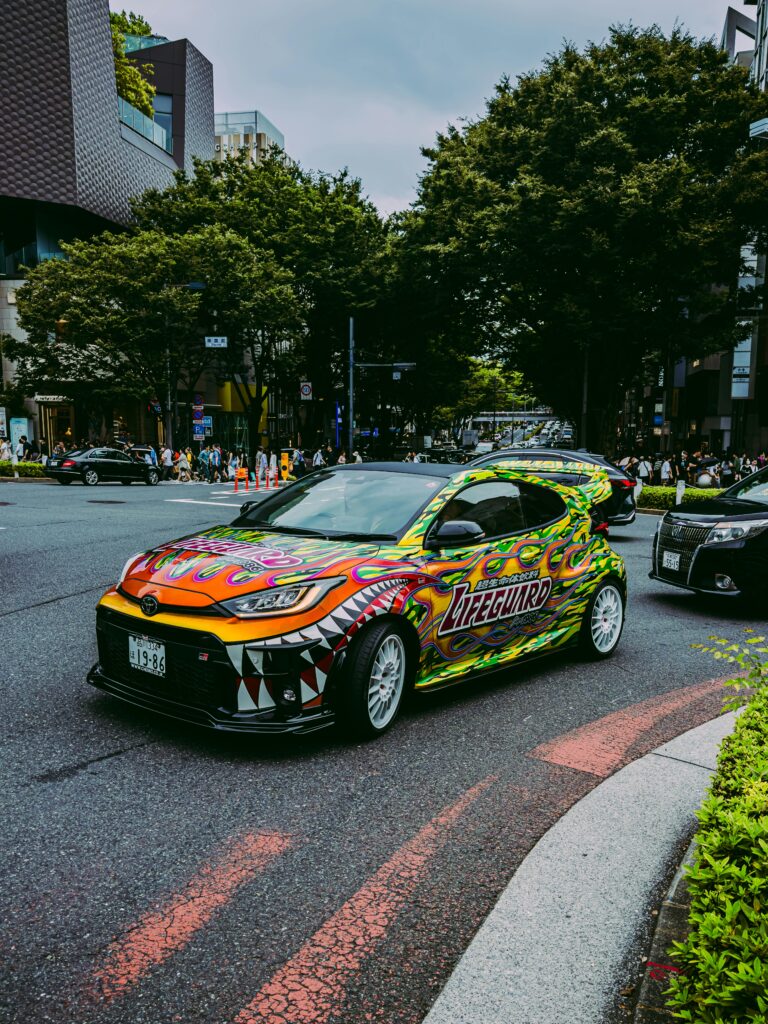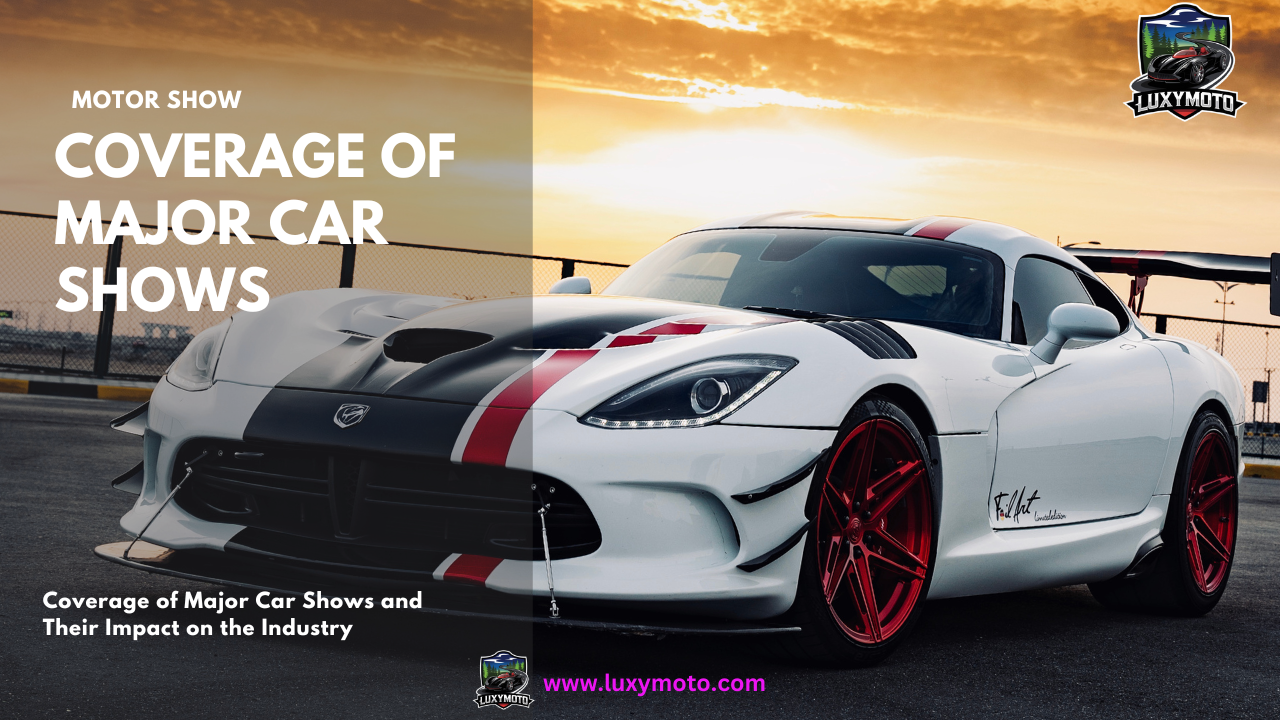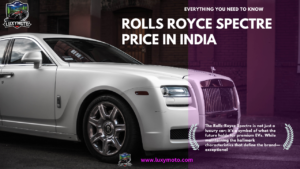Car shows are more than just exhibitions—they are celebrations of automotive innovation, heritage, and the future of transportation. Whether you’re a car enthusiast, a collector, or just someone with a passion for design and engineering, car shows offer a unique opportunity to experience the latest models, prototypes, and classic vehicles in one place. From elegant showcases of luxury vehicles to roaring displays of cutting-edge technology, major car shows attract thousands of visitors and industry professionals each year.
In this blog post, we’ll take a deep dive into the coverage of major car shows across the globe. From the Geneva International Motor Show to the Tokyo Auto Salon, these events reveal the future of the automotive industry while paying homage to its rich past. We’ll also explore why these shows are so essential to carmakers and enthusiasts alike.
coverage of major car shows

Why Are Car Shows So Important?
Car shows offer a platform for automakers to showcase their latest creations, concepts, and technological advancements. These events serve as a launchpad for new models, where companies can introduce their vehicles to the public and media, generating buzz and excitement. For the average car lover, major car shows are a rare opportunity to get up close and personal with the vehicles they’ve only seen in magazines or online.
Table of Contents
- Innovative Platforms: Car shows often provide a first look at new automotive technologies, including electric vehicles (EVs), autonomous driving systems, and cutting-edge infotainment systems.
- Networking Opportunities: For professionals in the automotive industry, car shows are ideal venues for networking, sharing insights, and building business relationships. They also help generate customer interest and feedback.
- Cultural Experiences: Beyond cars, these shows provide a glimpse into different automotive cultures from around the world, each event offering a distinct flavor of design, style, and engineering.
The Most Iconic Car Shows Around the World
When it comes to coverage of major car shows, there are several events that stand out as essential. These shows span the globe, attracting millions of people and featuring some of the world’s most famous car brands.
Geneva International Motor Show (Switzerland)

The Geneva International Motor Show is one of the most prestigious car shows in the world. Held annually in Switzerland, this event is a highlight on the automotive calendar. Automakers use this platform to debut their latest production models and concept cars. The Geneva show is renowned for its focus on luxury cars, supercars, and innovative technology.
Whether it’s Ferrari revealing a new hypercar or Tesla showcasing its latest EV, the Geneva Motor Show is always full of surprises. The show attracts a global audience of journalists, car enthusiasts, and industry insiders, making it one of the best-covered automotive events in the media.
Notable Moments:
- The unveiling of the Ferrari LaFerrari in 2013
- Lamborghini’s introduction of the Huracán
- The debut of the Bentley EXP 10 Speed 6 concept car
North American International Auto Show (Detroit, USA)
Also known as the Detroit Auto Show, this event is the largest and most important car show in North America. Held in the automotive heart of the U.S., the Detroit Auto Show is where American car manufacturers like Ford, General Motors, and Chrysler debut their newest models.
But it’s not just about American cars. International automakers also use the Detroit Auto Show to showcase their vehicles to a large North American audience. This show often highlights new trends in technology, from hybrid cars to self-driving vehicles.
Notable Moments:
- The reveal of the Ford Mustang Mach-E
- General Motors debuting its electric Hummer
- Tesla showcasing the Cybertruck prototype
Tokyo Auto Salon (Japan)

Japan’s biggest car show, the Tokyo Auto Salon, is famous for showcasing customized cars, aftermarket modifications, and the latest in Japanese domestic market (JDM) vehicles. While other major car shows focus on luxury and performance cars, the Tokyo Auto Salon caters to car enthusiasts interested in tuning and modifications.
From sleek sports cars to heavily customized trucks, this show is a paradise for anyone interested in performance tuning, street racing culture, and innovative car design. Toyota, Nissan, Honda, and other Japanese manufacturers often steal the show, but international brands also make appearances.
Notable Moments:
- The unveiling of the Toyota Supra GRMN concept
- Nissan showcasing its Nismo performance division
- The display of the Honda Civic Type R
Paris Motor Show (France)
The Paris Motor Show, also known as the Mondial de l’Automobile, is one of the oldest and most significant automotive events in the world. First held in 1898, this biennial event is a critical platform for European car manufacturers, especially French brands like Peugeot, Citroën, and Renault.
The Paris Motor Show is often a stage for electric vehicle (EV) debuts, as European automakers focus on sustainable transportation. It’s a trend-setting event that showcases the future of mobility, from electric hypercars to autonomous driving concepts.
Notable Moments:
- The introduction of the Renault Zoe EV
- Peugeot revealing its futuristic e-Legend concept
- Bugatti unveiling the Chiron to the public
Frankfurt Motor Show (Germany)
The Frankfurt Motor Show—or Internationale Automobil-Ausstellung (IAA)—is the largest motor show in the world. Held every two years in Frankfurt, Germany, it alternates with the Paris Motor Show. This event is essential for German carmakers like BMW, Audi, and Mercedes-Benz.
The Frankfurt show is known for its massive scale, often featuring hundreds of cars spread across several buildings. It’s also where some of the most cutting-edge car technologies are revealed, especially in the fields of sustainability and performance.
Notable Moments:
- BMW showcasing its Vision iNEXT concept
- Audi’s unveiling of the e-tron GT
- Mercedes-Benz debuting the EQC electric SUV
Goodwood Festival of Speed (UK)
While the Goodwood Festival of Speed isn’t a traditional car show, it’s one of the most exciting automotive events in the world. Held on the grounds of Goodwood House in West Sussex, England, this event is a celebration of speed and performance. The highlight of the festival is the Hillclimb, where cars ranging from classic models to modern supercars race against the clock.
Goodwood attracts some of the world’s fastest cars, including hypercars from McLaren, Ferrari, and Bugatti. It’s a unique event that brings together car lovers from around the world to witness automotive history in action.
Notable Moments:
- McLaren showcasing the Speedtail
- Bugatti setting a record with the Veyron Super Sport
- Ferrari displaying its limited-edition models
Coverage of Major Car Shows and Their Impact on the Industry
Car shows don’t just generate excitement among car enthusiasts; they also have a profound impact on the automotive industry. Automakers use these events to test public reaction to new models, gauge market interest, and create a buzz that can translate into sales. For car brands, the coverage of major car shows is essential to staying relevant and competitive in a fast-evolving industry.
- Brand Exposure: Major car shows offer automakers a platform to showcase their brand in front of a global audience. With extensive media coverage, these shows help manufacturers maintain their presence in the public eye.
- Market Research: Car shows allow manufacturers to receive direct feedback from consumers, automotive experts, and the media, helping them refine their products before they hit the market.
- Technological Trends: Many of the latest automotive technologies, from electric powertrains to autonomous driving systems, are first introduced at car shows. These events offer insight into where the industry is headed.
Pros and Cons of Major Car Shows
Pros:
- First Look at New Models: Car shows give visitors the opportunity to see the latest vehicles before they hit the market.
- Exclusive Access to Concept Cars: Many automakers reveal concept cars at major shows, offering a glimpse into the future of automotive design.
- Networking Opportunities: For industry professionals, car shows are ideal venues for networking and business development.
- Media Coverage: Extensive media coverage of major car shows ensures that the latest models receive worldwide attention.
Cons:
- Limited Access for the General Public: Many major car shows are industry-only events, restricting access for the average consumer.
- Expensive to Attend: For those looking to attend international shows, travel and accommodation costs can be significant.
Overwhelming Crowds: Popular shows like Geneva and Detroit can attract massive crowds, making it difficult to see everything
Conclusion
A Global Stage for Automotive Innovation
One of the most significant contributions of major car shows is their ability to serve as a platform for innovation. Whether it’s new safety features, cutting-edge infotainment systems, or revolutionary powertrains, the world’s top automakers seize these events to unveil technologies that can redefine the industry. Electric and autonomous vehicles, once mere concepts, have now become mainstream, in large part due to the coverage of major car shows that highlighted these innovations. Shows like the Geneva International Motor Show and the North American International Auto Show have given automakers a chance to present their vision for the future of mobility.
For manufacturers, these events are more than just marketing opportunities. They offer a chance to gauge public and industry reactions to new models and innovations. Consumer and media feedback gathered at these events often influences production decisions, refining prototypes into cars that resonate with buyers.
Bringing the Automotive Community Together
The sense of community fostered by these shows is another critical reason they have such a lasting impact. Major car shows offer something for everyone: from high-end luxury buyers to fans of performance tuning, and from automotive engineers to hobbyists. Each show provides a unique insight into its host country’s automotive culture, whether it’s the sleek luxury of the Geneva show, the engineering prowess of the Frankfurt Motor Show, or the wild creativity at the Tokyo Auto Salon.
Moreover, car shows create a space for collaboration between industries, not just within the automotive sector but across technology, entertainment, and even sustainability. The increasing integration of eco-friendly technologies like electric drivetrains and hydrogen fuel cells is an essential topic of discussion at every major car event, and these shows play a pivotal role in normalizing the conversation around cleaner, more sustainable mobility.
A Reflection of Changing Consumer Expectations
In today’s rapidly evolving market, car buyers are no longer just interested in speed and aesthetics. They want cars that align with their values, whether that’s sustainability, cutting-edge technology, or a balance of both. The coverage of major car shows allows consumers to witness firsthand how car manufacturers are responding to these changing expectations. It’s where automakers can present vehicles that cater to specific lifestyle choices, from eco-conscious commuters to luxury seekers looking for the ultimate driving experience.
A Lasting Influence Beyond the Event
The influence of major car shows doesn’t end when the event wraps up. The extensive media coverage they receive ensures that the highlights, trends, and standout models live on in public consciousness long after the doors close. The world’s major car shows continue to set trends, define expectations, and inspire the next generation of automotive enthusiasts and professionals.
In conclusion, the coverage of major car shows plays a vital role in shaping the global automotive industry. From introducing new technologies to celebrating automotive heritage, these events serve as a bridge between the past and the future, the manufacturer and the consumer, and the practical and the visionary. Their continued relevance in the ever-changing world of cars underscores their importance, not just as exhibitions but as cornerstones of automotive culture.
FAQs About Coverage of Major Car Shows
1. What are the biggest car shows in the world?
The biggest car shows include the Geneva International Motor Show, North American International Auto Show (Detroit), Paris Motor Show, Frankfurt Motor Show, Tokyo Auto Salon, and Goodwood Festival of Speed.
2. How often are major car shows held?
Most major car shows, like the Geneva Motor Show and Detroit Auto Show, are held annually. Some, like the Paris and Frankfurt Motor Shows, are biennial.
3. What is the importance of concept cars at car shows?
Concept cars at major car shows allow automakers to showcase futuristic designs and technologies that may eventually make their way into production models.
4. Can the public attend major car shows?
Yes, many car shows are open to the public. However, some days are reserved for industry professionals and media.
5. How do car shows benefit automakers?
Car shows provide automakers with an opportunity to generate media buzz, showcase new models, and gauge public interest in upcoming vehicles.





Pingback: Rolls Royce Spectre Price in India Everything You Need
Pingback: Super Cars The Ultimate
Wow, thbis piece of writing is pleasant, my younger sister is
analyzing these kinds of things, so I am going to convey her. https://lvivforum.pp.ua/
Wow, this piece of writing is pleasant, myy
younger sister is analyzing these kinds of things, so I am going to convey her. https://lvivforum.pp.ua/